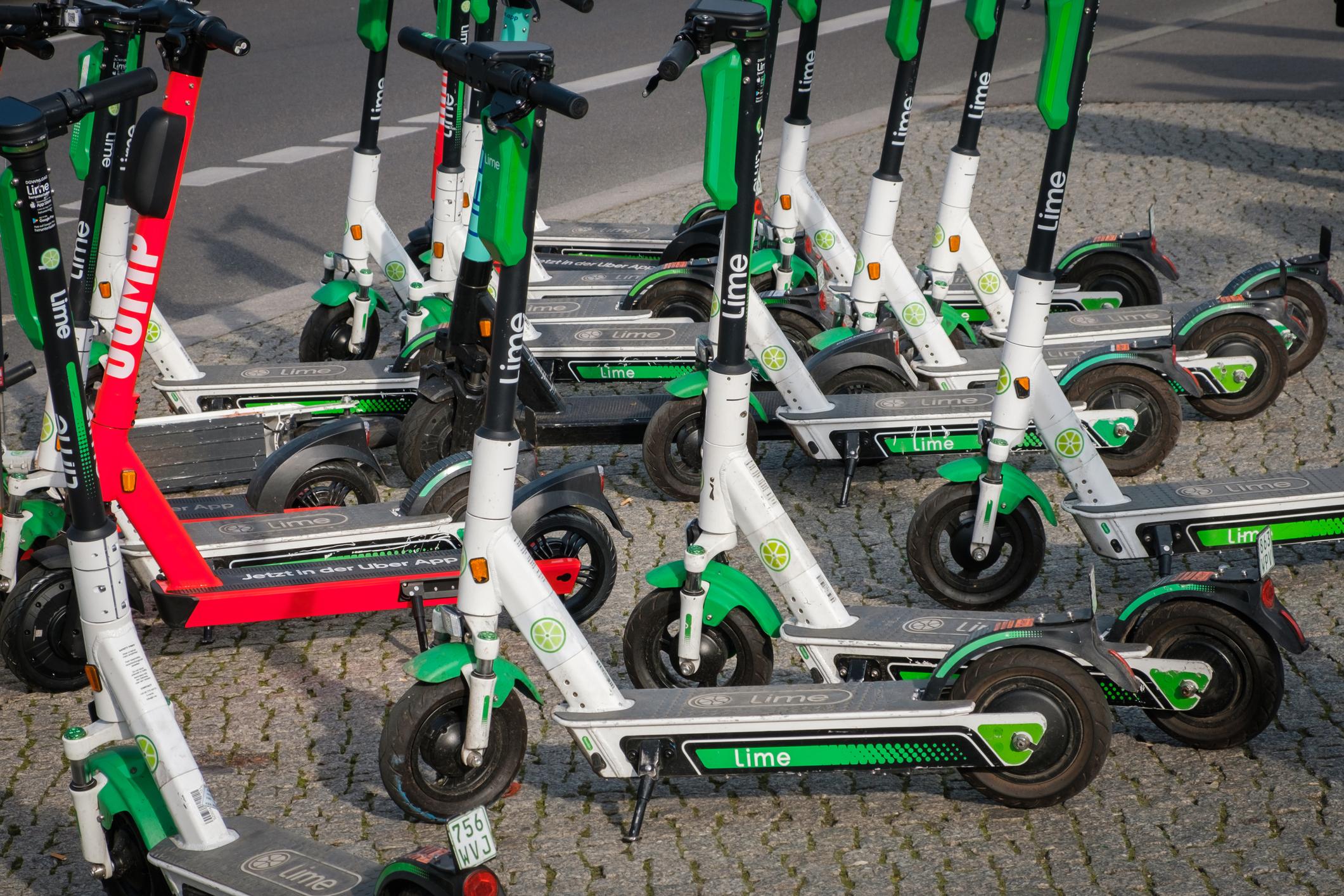If you went abroad in Europe last year you probably noticed them; maybe you even tried them: now “dockless” e-scooter rental schemes are coming to the UK.
From Saturday it’ll becoming legal to ride electric scooters on British roads, but only as part of these rental schemes. You download an app, it directs you to a scooter, you ride them, and it bills you depending on how long you spent on it.
For now, the many private scooters you may have seen around will remain illegal – they are currently sold with the widely-ignored small print saying they can only be used on private land.
The government’s decision to legalise the rental schemes but not the personally-owned scooters some people already have is an odd one, and could be a symptom of the fact they have been heavily lobbied by these companies to open the UK’s lucrative market.
Proponents of the scheme will suggest the vehicles’ appearance is great news given the coronavirus pandemic: people are being warned away from public transport, so providing alternatives could be a good thing.
I lived in Brussels until recently, where the scooters have been legal for some time: unfortunately it is not going to be that simple. They are widely considered a pest.
The biggest drawback of the scooters is the fact they are “dockless” – the system is designed so that they can be left anywhere, which is very convenient for the rider! Unfortunately this quickly becomes very inconvenient for anyone who likes to walk down the pavement, because they have to pick their way through piles of scooters.
They are surprisingly large and surprisingly heavy, and even one or two, positioned inconsiderately or accidentally knocked over require negotiation to get around. The fact multiple companies compete over the same territory, each with their own scooters, only increases the clutter. It is little wonder that so many end up in Europe’s rivers and canals, because they are extremely annoying. At a time when councils are having to widen pavements to help with social distancing, it seems perverse to take up even more scant pedestrian space with parked vehicles.
People with reduced mobility or vision suffer particularly: the Royal National Institute of Blind People said on Wednesday that the scooters are “a real and genuine threat to the ability of blind and partially sighted people to move around independently and safely”.
In addition to trip hazards, the charity also believes the speed limits imposed by the government are too high, and is worried that acceleration is significantly faster than a bike. There are fears that, whatever the law says, people are going to ride them silently and quickly on the pavement. (Legally they will be asked to stay on the roads or cycle paths.)
The rental schemes also do away with any environmental benefits you might expect an electric vehicle to have. Despite claims from some companies that your ride is “zero emissions”, a number of studies have shown that it will be anything but.
The main reason for this is that they have a very short lifespan in the field: one analysis last year found that the average lifespan for a rental unit was 28 days. Other studies have suggested a bit longer, but nobody is claiming they last more than a few months – an extraordinarily short time for a manufactured vehicle with its own battery, that is shipped in from China. They are effectively treated as disposable.
By some measures (though not all) they are more environmentally friendly than a car, but the evidence so far suggest they’re not being used instead of cars. Instead, they are replacing more sustainable modes of transport. Professor Jillian Anable, from the Institute for Transport Studies at the University of Leeds, told MPs on Wednesday that most people riding e-scooters tend to be drawn from walking, cycling, or public transport.
This was certainly my experience in Brussels – they tend to be used by “pedestrians in a hurry” who happen upon them out and about. They are also very popular with tourists, particularly those who have had a few beers. But dockless systems tend to be too unreliable for regular commuting as there is no guarantee there’ll be one near your home when you get up in the morning (or that it’ll be working when you get there – the systems can be quite unreliable). Bicycles already exist and are in many ways superior; they are certainly greener. A personally-owned e-scooter also causes fewer problems than the dockless schemes.
One way of mitigating the problems the schemes cause could be to require “virtual” docks – tightly limiting the areas of the city where you can leave them (this is technically possible because the vehicle’s location is constantly tracked by the system). This approach would make the schemes less convenient, but potentially eliminate a lot of the downsides for pedestrians.
It would also have to be done well: replacing car parking spaces with small scooter parks rather than just turning certain pavements into dumping grounds. Some European cities have tried this and have had more luck than others.
Around 50 local authorities have signed to up to pilot the rental schemes – only a few will be picked. The way they deal with the problems will probably be quite variable, as local government always is. We’ll have to see how they get on: in the meantime, try not to trip up.


Join our commenting forum
Join thought-provoking conversations, follow other Independent readers and see their replies
Comments